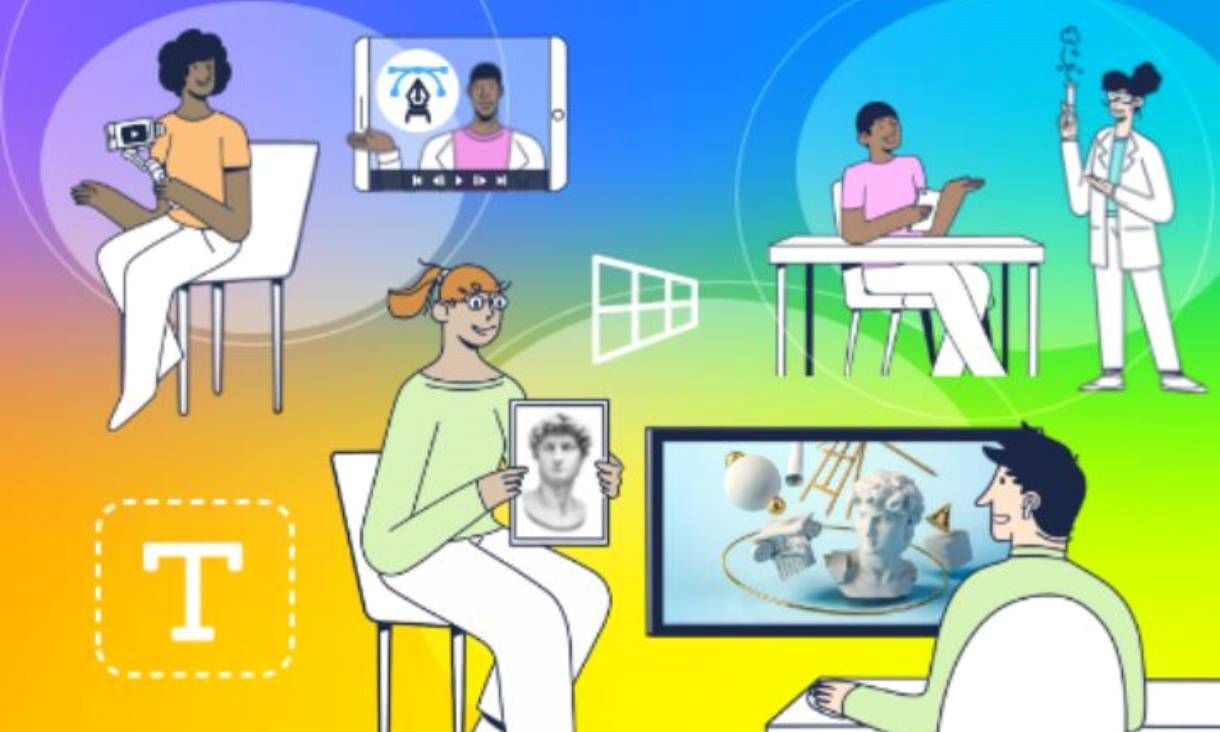
Artificial intelligence (AI) is now pervasive in how we navigate across the city, what digital media we see and now some of the text we consume. This ubiquitous use of machine learning is part of our present and our futures, but how does generative AI impact teaching, learning and making?
As part of the Adobe Creative Campus, RMIT x Adobe is hosting a series of events with international thought leaders to challenge practice.
Join us for a provocative discussion around generative AI and its impact in our lives, our realities and our approach to education.
1-2pm: Presentation
2-3pm: Networking & snacks
Location: Ngargee Auditorium - Building 106, Level 7 (222 Swanston Street, Melbourne)
We'll also be launching the Salon of Expanded Forms and the first Adobe x Creative Curriculum Grant Program - supporting educators to think, create and teach into the future.
Come and celebrate our RMIT Adobe Creative Campus and find out how to engage!
Some further research from Adobe that may be of interest.
Positioned within writing studies, Dobrin’s research focuses on aspects of the Digital Humanities (DH) and Environmental Humanities (EH). Specifically, his work considers the relationship between writing and emerging technologies, such as Artificial Intelligence (AI), Augmented Reality (AR), and Virtual Reality (VR). He also examines the ecological properties of writing, as well as ecocriticism and ecocomposition, including questions of oceanic criticism. Dobrin is the Founding Director of the Trace Innovation Initiative, a research hub that studies emerging writing technologies such as AI, AR, and VR. Dobrin has been named a Digital Thought Leader by Adobe. He is a member of the Florida Institute for National Security (FINS), part of UF’s AI Initiative.
Dobrin’s latest monograph Blue Ecocriticism and the Oceanic Imperative (Routledge, 2021) initiates a conversation about blue ecocriticism: critical, ethical, cultural, and political positions that emerge from oceanic or aquatic frames of mind rather than traditional land-based approaches. His previous book, Fishing, Gone? Saving the Ocean through Sportfishing, a book about the future of the world’s oceans, was published by Texas A&M University Press in 2019. In conjunction with the Florida Institute for National Security, he is currently working on a new book about oceanic protein security from an environmental humanities perspective. He is also completing three edited collections: Artificial Intelligence and the Humanities (Parlor Press); Rhetorical Ecologies (with Madison Jones; National Council of Teachers of English Press); and The Humanities Division (with Jason Crider; Parlor Press).
Professor Karin Verspoor is Dean of the School of Computing Technologies at RMIT University in Melbourne, Australia.
Karin's research primarily focuses on the use of artificial intelligence methods to enable biological discovery and clinical decision support, through extraction of information from clinical texts and the biomedical literature and machine learning-based modelling.
Karin held previous posts as Director of Health Technologies and Deputy Head of the School of Computing and Information Systems at the University of Melbourne, as the Scientific Director of Health and Life Sciences at NICTA Victoria Research Laboratory, at the University of Colorado School of Medicine, and at Los Alamos National Laboratory.
She is also the Victorian Node lead and co-founder of the Australian Alliance for Artificial Intelligence in Health.
Professor Lisa Given is Director, Social Change Enabling Impact Platform and Professor of Information Sciences in the School of Global, Urban and Social Studies and the School of Computing Technologies at RMIT University in Melbourne, Australia..
Lisa is an interdisciplinary researcher in human information behaviour whose work brings a critical, social research lens to studies of technology use and user-focused design. Her studies embed social change, focusing on diverse settings and populations, and methodological innovations across disciplines. A former President of the Association for Information Science and Technology, Prof Given has served on the Australian Research Council’s (ARC’s) College of Experts. She holds numerous grants funded by ARC, Canadian Institutes for Health Research, and Canada’s Social Sciences and Humanities Research Council, working with university and community partners across disciplines. She is lead author of the forthcoming 5th edition of Looking for Information: A Survey of Research on Information Seeking, Needs and Behavior, author of 100 Questions (and Answers) about Qualitative Research (2016), and editor of The Sage Encyclopedia of Qualitative Research Methods (2008).
You can follow her on Twitter @lisagiven and find out more about her work at http://lisagiven.com/.
When you attend RMIT official events or activities you may be photographed or recorded. By attending the event, you agree to RMIT's Terms.

Acknowledgement of Country
RMIT University acknowledges the people of the Woi wurrung and Boon wurrung language groups of the eastern Kulin Nation on whose unceded lands we conduct the business of the University. RMIT University respectfully acknowledges their Ancestors and Elders, past and present. RMIT also acknowledges the Traditional Custodians and their Ancestors of the lands and waters across Australia where we conduct our business - Artwork 'Luwaytini' by Mark Cleaver, Palawa.